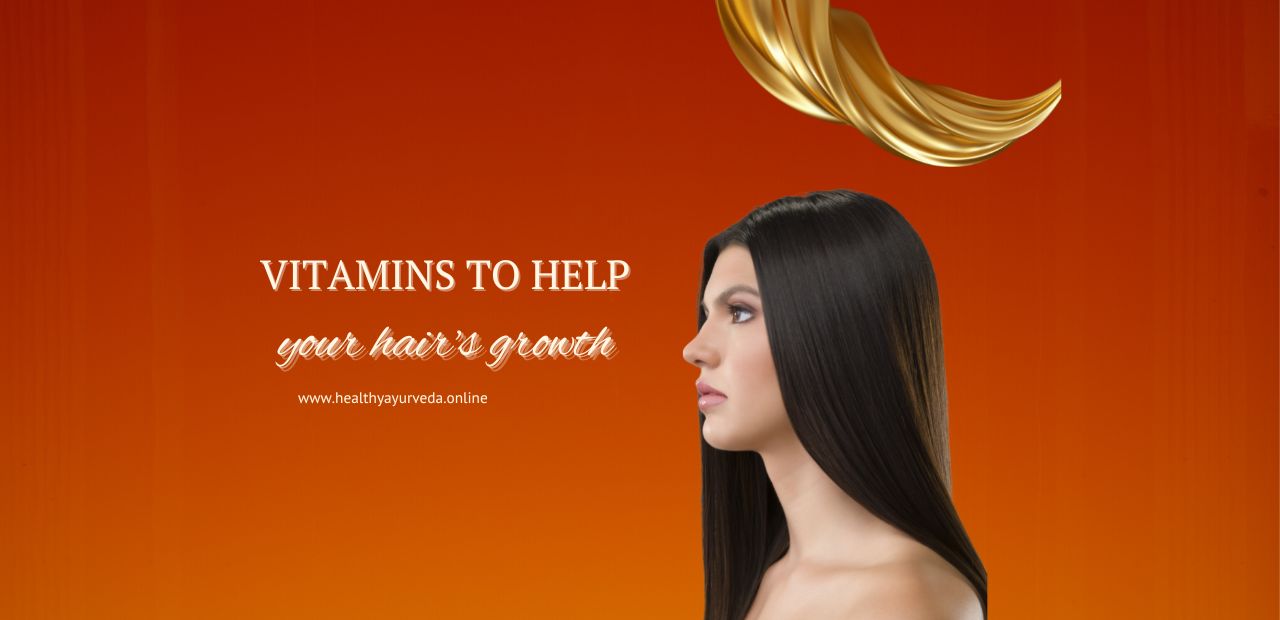
The best vitamins to help your hair’s growth, thickness, and overall health
vitamins to help your hair’s growth Vitamins are essential for overall health. Some of the best vitamins for hair health are found in food and supplements. Some people believe that taking specific vitamins can help improve hair growth and thickness, and even prevent hair loss.
However, many factors must be considered before taking vitamin supplements, such as a person’s diet and occupation.
Vitamins are essential for overall health, but some vitamins are better than others when it comes to hair health. This is because different vitamins help to promote different hair growth patterns.
Vitamins are essential for overall hair health and growth. They help to keep the hair follicles functioning properly and can promote thicker, healthier hair. Some vitamins specifically relevant to hair health are vitamin B6, biotin, vitamin C, and vitamin D.
Vitamins are essential for overall physical and emotional well-being and can play a role in hair growth and thickness. Some of the most commonly recommended vitamins for hair include biotin, pantothenic acid, and vitamin B6. While all of these vitamins can be beneficial, there are a few that stand out as particularly effective in supporting hair growth.
1 . B vitamins
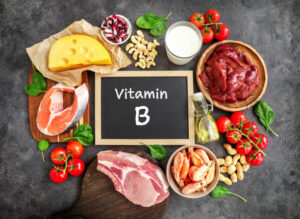
- Vitamins B1, B2, B3, B5, and B12 help promote hair growth and improve hair thickness. They also help keep the hair healthy, reducing the likelihood of hair loss or hair damage.
- Vitamins are essential for the growth, thickness, and overall health of your hair. They are involved in many biochemical reactions in the hair follicle, including the production of keratin, a protein that is important for the strength and elasticity of the hair. By including certain vitamins in your diet, you can help support your hair’s health and growth.
- Lack of B vitamins can lead to hair loss, thinning hair, and a general feeling of fatigue. Whether you are a teenager or an adult, it is important to get enough B vitamins to help promote healthy hair growth. Some of the best sources of B vitamins include dairy, leafy green vegetables, and poultry.
- Vitamin B12 is important for hair growth because it helps convert the amino acids that make up hair into actual hair. This can help make hair thicker, fuller, and more resistant to damage. Additionally, vitamin B6 is essential for the production of keratin, the protein that makes up the hair. Both vitamins are found in plant-based sources, like fortified foods and supplements.
- Acetyl-L-Carnitine is a nutrient that has been shown to promote hair growth. Acetyl-L-Carnitine can be found in green leafy vegetables, red meat, and poultry. Supplementing with acetyl-L-Carnitine has also been shown to improve hair thickness, shine, and elasticity.
2. Vitamin A
- Vitamin A is one of the most important vitamins for hair growth. Vitamin A is important for several reasons, including it, helps the skin produce sebum, it helps with cell growth, and it is an antioxidant. Vitamin A can be found in several different foods, including sweet potatoes, carrots, dark leafy greens, and eggs.
- Vitamin A is a group of unsaturated nutritional organic compounds that includes retinol, retinal, retinoic acid, and several provitamins A carotenoids, among which beta-carotene is the most important. Vitamin A has multiple functions: it is important for growth and development, for the maintenance of the immune system, and good vision. Vitamin A also plays an important role in reproduction.
- Vitamin A is an essential nutrient for hair growth. It helps the skin produce sebum, an oily substance that keeps hair moisturized. A lack of vitamin A can lead to dry, brittle hair that is more prone to breakage. The best sources of vitamin A are liver, egg yolks, butter, and fortified foods.
- Vitamin A is a nutrient that can be found in many foods we eat. It’s also available as a supplement. Vitamin A is important for many reasons. It helps keep our skin and hair healthy.
- Vitamin A helps to keep your scalp healthy, as well as your sebaceous glands, which produce the natural oils that keep your hair moisturized. A deficiency in vitamin A can lead to a dry, itchy scalp and dandruff. Foods rich in vitamin A include sweet potatoes, carrots, spinach, kale, and eggs.
- You can also take a vitamin A supplement, but be sure not to take more than the recommended daily amount, as too much vitamin A can be toxic.
3. Vitamin C

- Vitamin C is an essential nutrient required for the biosynthesis of collagen. Collagen is the main structural protein in the skin, tendons, ligaments, and bone. Vitamin C is also an important antioxidant that helps protect against damage caused by free radicals. Free radicals are molecules that can damage cells and lead to inflammation.
- Vitamin C is a powerful antioxidant that helps the body to produce collagen, which is crucial for hair growth. Vitamin C can be found in citrus fruits, bell peppers, and dark leafy greens. To get the most benefit from vitamin C, it is best to consume it through foods rather than supplements.
- Vitamin C is an essential vitamin that helps the body create collagen. Collagen is important for keeping the structure of hair and skin strong. Vitamin C also helps the body absorb iron, and iron deficiency can lead to hair loss. So, if you’re looking for vitamins to help with hair growth, thickness, and overall health, consider adding foods rich in vitamin C to your diet.
- Vitamin C is one of the best vitamins for hair growth. It helps with the production of collagen, which is essential for hair growth. It also helps the body absorb iron, which is essential for healthy hair. Vitamin C is found in oranges, grapefruits, strawberries, broccoli, and Brussels sprouts.
- When it comes to vitamins for hair growth, vitamin C is indispensable. This essential nutrient plays a vital role in the formation of collagen, which gives hair its strength. Without enough vitamin C, your strands will be more susceptible to breakage.
4. Vitamin D

- Vitamin D is one of the best vitamins for hair growth, thickness, and overall health. Its effects are due to its role in the production of the hormone calcitriol. This hormone helps promote the growth and health of hair follicles. In addition, vitamin D can help protect against sun damage, which is one of the main causes of hair loss.
- Vitamin D is essential for healthy hair and nails. A deficiency in this vitamin can lead to thinning hair, brittle nails, and even hair loss. To get the most out of your vitamins, make sure to take them with food. If you’re looking for a good multivitamin to take, we recommend New Chapter’s Hair, Nails, and Skin Health Formula.
- Vitamin D is a vitamin that your skin needs to produce healthy skin. It is essential for the regulation of the growth and function of bones and teeth and helps keep your immune system functioning properly. Recent studies suggest that regular intake of vitamin D may also help promote hair growth. If you’re looking for a way to help increase your hair growth, incorporating vitamin D into your daily routine may be a good idea.
- Vitamin D is a nutrient that is essential for optimal hair growth and health. A lack of vitamin D can lead to hair loss, thinning hair, and a lower quality of hair. Many foods contain vitamin D, including animal products, fortified foods, and supplements. It is important to be aware of the risks associated with not taking a vitamin D supplement, such as osteoporosis, and to make sure you are getting enough vitamin D from food.
- Vitamin D is a powerful nutrient that can help improve hair growth, thickness, and overall health. Clinical trials have shown that taking vitamin D can help improve hair density, strength, and thickness. Vitamin D is also known to improve the condition of the scalp, giving you healthier hair. However, it is important to note that too much vitamin D can also be harmful.
5. Vitamin E

- Vitamin E is important for the health of your scalp and hair. Vitamin E helps to keep your hair follicles healthy, which in turn helps promote hair growth. According to the Linus Pauling Institute, Vitamin E is an important antioxidant that protects cell membranes from oxidative damage. Foods high in vitamin E include sunflower seeds, almonds, and spinach.
- Vitamin E is not only good for the skin, but it is great for the hair as well. It can help to promote hair growth and can also help to thicken hair. Vitamin E is also an antioxidant, so it can help to protect the hair from damage.
- Vitamin E is one of the essential vitamins for hair growth. It contains natural antioxidants, which can help to protect the scalp and hair follicles from damage. Vitamin E is also known to promote circulation, which can help to increase the delivery of nutrients to the hair follicles.
- Vitamin E, found in foods like almonds and avocados, is another vitamin that’s essential for hair health. Vitamin E is an antioxidant that helps to prevent damage to the scalp and hair follicles, says Dr Sivieri. It also helps to keep the scalp moisturized, which can promote hair growth. If your diet is lacking in vitamin E, you may notice that your hair is dry, brittle, and breaks easily.
- Vitamin E is one of the most important vitamins for hair growth and overall health. It helps to keep your scalp healthy and can stimulate blood flow to the scalp, which is important for hair growth.
- Vitamin E is also an antioxidant, which means it can help to protect your hair from damage. Many foods are high in vitamin E, such as nuts, seeds, and leafy greens.
6. B complex vitamins
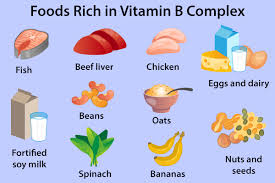
- Vitamins B12, B6, and B9 play an important role in hair growth. Each of these vitamins is essential for the body to convert food into energy. When these vitamins aren’t absorbed properly, they can lead to hair loss and other health problems.
- Vitamins B6, B12, and folic acid are essential for hair growth and overall health. These vitamins help to produce new hair cells and promote healthy blood flow.
- B vitamins are essential for hair health and growth. They help reduce the likelihood of hair loss, promote hair thickness, and help maintain healthy scalp pH levels.
- Vitamin B12 and biotin are essential for hair growth, thickness, and overall health. These vitamins promote hair growth by helping to form new hair follicles, increasing the production of hair oils, and supporting the immune system.
- Vitamins B12, B6, and B3 are all necessary for hair growth. While all of these vitamins have their benefits, taking them together can be the most effective.
7. Iron
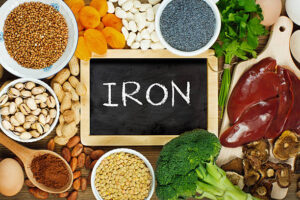
- Iron is an essential mineral for hair growth. An iron deficiency can lead to brittle hair and a decreased ability to fight against hair loss. consuming foods high in iron, like red meat, poultry, and fish, can help to ensure that your hair is getting the minerals it needs to grow. However, there are also some vitamins and supplements that contain iron, which can provide the same benefits.
- Iron is a mineral that is important for hair growth and health. Iron is needed for the production of haemoglobin, the protein that carries oxygen in the blood. Iron also helps to produce the lipid bilayer that makes up the skin’s outer layer. Selenium is another mineral that supports hair growth and health.
- Iron deficiency can lead to hair loss, poor scalp health, and a decreased antioxidant capacity in the hair. Although many people believe that iron supplementation is necessary for optimal hair growth, there is no scientific evidence to support this claim. Some of the best sources of iron include meats, poultry, fish, and nuts.
- many different vitamins and minerals can help with hair growth, thickness, and overall health. Some of the best vitamins for hair growth are iron, zinc, and vitamin B12. While there are many different brands of vitamins and supplements, always be sure to speak with a doctor before taking any supplements to ensure that they are safe for you.
- Iron is an essential mineral that your body needs to produce hair. It is also essential for maintaining your blood pressure, muscle function, and cognitive health. In addition to these benefits, iron can help stimulate hair growth.
8. Zinc

- Some people believe that zinc is the best vitamin for hair growth, thickness, and overall health. This is because zinc is a mineral that is essential for numerous processes in the body, including hair growth and maintenance.
- Some research suggests that zinc can help prevent hair loss and promote hair growth, while other studies have shown that zinc can help improve the quality of hair. There are a few different sources of zinc, and some people recommend taking zinc supplements.
- Zinc is important for hair growth because it helps to create new cells and keeps the scalp healthy. It also helps to keep hair thick, shiny, and free from split ends.
- “Zinc is a mineral that is incredibly important for hair health. It’s essential for controlling hair growth, preventing hair loss, and improving the quality of your hair. Zinc can also help improve the strength and elasticity of your hair, making it less likely to break or become dry and brittle
- In addition, zinc helps to keep scalp skin healthy and hydrated, which is beneficial for hair growth and maintenance.”
- “Zinc is an essential mineral for hair growth and thick hair. It helps to promote keratin production, which is the protein that makes up the hair. Zinc also helps to keep the hair shaft smooth and elastic.”
- Too little zinc can lead to hair loss, thinning hair, and lessening scalp health. While many foods contain zinc, it’s important to find a source that is high in the mineral, as zinc deficiencies are common. In this article, we will explain four of the best zinc supplements for hair growth and maintenance.
you Might also Like– Trust these 6 seeds to boost hair growth and prevent hair fall
Conclusion-:
- Some people believe that zinc is the best vitamin for hair growth, thickness, and overall health. This is because zinc is a mineral that is essential for numerous processes in the body, including hair growth and maintenance.
- Some research suggests that zinc can help prevent hair loss and promote hair growth, while other studies have shown that zinc can help improve the quality of hair. There are a few different sources of zinc, and some people recommend taking zinc supplements.
- Zinc is important for hair growth because it helps to create new cells and keeps the scalp healthy. It also helps to keep hair thick, shiny, and free from split ends.
- “Zinc is a mineral that is incredibly important for hair health. It’s essential for controlling hair growth, preventing hair loss, and improving the quality of your hair. Zinc can also help improve the strength and elasticity of your hair, making it less likely to break or become dry and brittle. In addition, zinc helps to keep scalp skin healthy and hydrated, which is beneficial for hair growth and maintenance.”
- “Zinc is an essential mineral for hair growth and thick hair. It helps to promote keratin production, which is the protein that makes up the hair. Zinc also helps to keep the hair shaft smooth and elastic.”
- Too little zinc can lead to hair loss, thinning hair, and lessening scalp health. While many foods contain zinc, it’s important to find a source that is high in the mineral, as zinc deficiencies are common. In this article, we will explain four of the best zinc supplements for hair growth and maintenance.



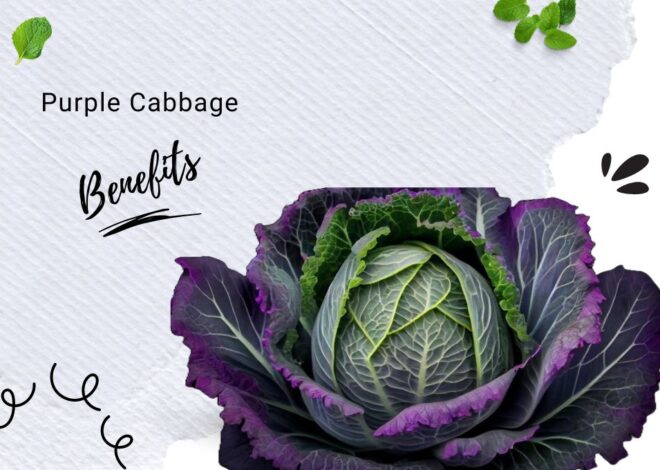
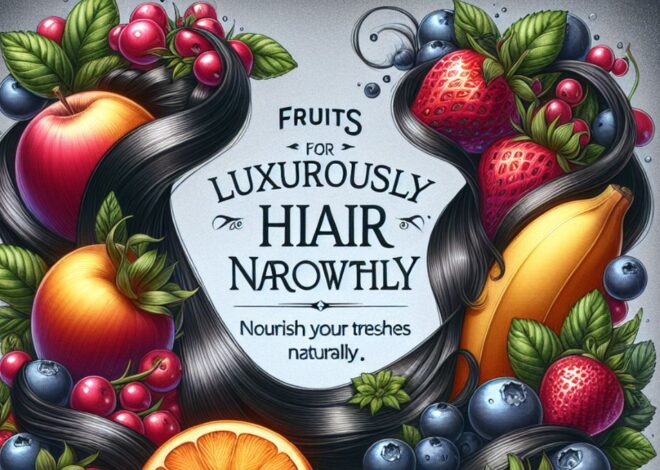
I have read your article carefully and I agree with you very much. This has provided a great help for my thesis writing, and I will seriously improve it. However, I don’t know much about a certain place. Can you help me? https://www.gate.io/ja/signup/XwNAU